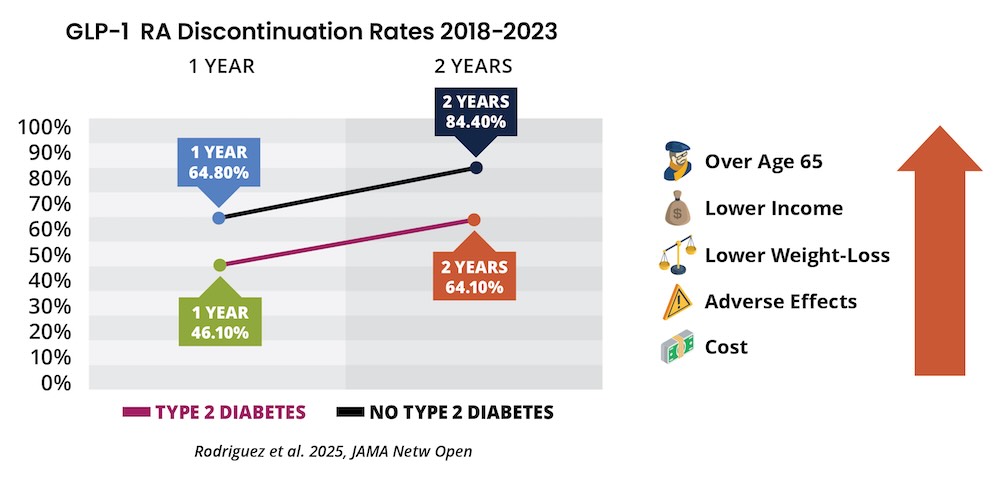
Patients have a choice between multiple effective weight loss options for the first time in many years. Until recently, bariatric surgery was the only way for most obese patients to experience dramatic and sustained weight loss. However, our armamentarium has another option with weight loss medications like Wegovy and Zepbound, also known as GLP-1 receptor agonists. While these medications represent a very different weight loss modality compared to bariatric surgery, both can offer significant weight loss and are particularly effective when selected for the correct patients.
When Wegovy/Zepbound Makes Sense
Weight loss medications like Wegovy and Zepbound have a particular use case: typically, patients on the lower end of the obesity scale according to their BMI, which is 30 to 35, would be best served by losing approximately 15 to 25% of their body weight, and this may resolve many of their comorbidities.
When Bariatric Surgery Makes More Sense
On the other hand, bariatric surgery may make a lot more sense for patients who are higher on the obesity scale. For one, in clinical trials, only 56% of Zepbound patients exceeded the 25% body weight loss mark. For patients above a BMI of 40, this may not be enough. For example, let’s take a 5-foot 10-inch patient at 314 pounds (a BMI of 45)
A 25% body weight loss as one of the more successful Zepbound patients would represent a 79lb weight loss and a final BMI of 33—still considered obese.
80% excess body weight loss with a duodenal switch or SADI would represent a 108lb weight loss and a final BMI of 29, under the obese threshold.
With that said, there is also the consideration that weight loss medication does not work for everyone, and some patients will not be able to tolerate the side effects. Others will not see significant improvement.
Comparing Costs
Of course, the cost of medication versus bariatric surgery is essential. On the one hand, medication offers patients a lower upfront cost, but if it is not covered by insurance, it can require between $800 and $1,000 in investment each month. Further, because these medications do not address the underlying issue associated with obesity, they only work for as long as they’re taken. As such, patients incur those costs indefinitely.
Bariatric surgery, however, represents a single upfront cost that can be mitigated through insurance or special cash pay rates. While the cash-pay rate still represents a significant outlay, it is approximately the equivalent of a year or two (depending on the procedure) of cash-pay weight loss medication. From there, patients will be responsible for purchasing vitamins and protein shakes, which will not cost nearly as much as the ongoing medication cost.
As such, patients must examine their financial situation and determine whether they can maintain the new lifestyle.
Comparing the Side Effects
GLP-1 medications have several potential side effects, including vomiting, diarrhea, pancreatitis, gallbladder concerns, muscle mass loss, and gastroparesis. How serious these are depends on the individual, but may force some to stop taking the medication, at which point they would likely regain weight.

Bariatric surgery also has side effects and potential risks, including all the risks inherent to a surgical procedure. That said, bariatric surgery is very safe, with mortality rates as low as a simple gallbladder removal.
Can Medications and Surgery Work Together?
This is an excellent question that must be addressed with every patient individually. The truth is yes, weight loss medication can be used before and after surgery to enhance the procedure results and improve the safety of surgery. You can speak to your bariatric surgeon about incorporating weight loss medication into your overall bariatric surgery plan.
Bottom Line
Bariatric surgery and weight loss medications have their place in the continuum of weight loss for patients with obesity, but their applications are very different. This does not mean one is necessarily better, but it shows the importance of tailoring a particular weight loss plan for every patient. Employing a comprehensive weight loss program like SAMPA’s is the key to finding the appropriate weight loss modality for you.




